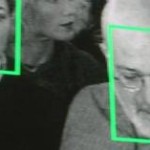
The International Biometrics and Identification Association (IBIA) recently issued a “best practices” document listing numerous recommendations on how to best deploy biometric technology for commercial situations. The IBIA is participating in the National Telecommunications and Information Administration (NTIA) effort to develop a voluntary code of conduct that specifies how the Consumer Privacy Bill of Rights applies to facial recognition technology in a commercial environment.
The Consumer Privacy Bill of Rights is an initiative of the Obama administration that seeks to provide a comprehensive blueprint to improve consumers’ privacy protections while concurrently ensuring that the Internet remains an engine for innovation and economic growth.
The blueprint will guide efforts to give users more control over how their personal information is used on the Internet and to help businesses maintain consumer trust and grow in a rapidly changing digital environment.
IBIA is participating in the NTIA’s multi-stakeholder process regarding the commercial use of facial recognition technology through a facilitated discussion that examines how best to ensure that consumers’ rights to “control, transparency, security, access, accuracy, focused collection, and accountability” are respected within the context of current and emerging commercial uses of facial recognition technology.
The IBIA determined in its best practices document that privacy is vulnerable to abuse by many means and methods and therefore recommends that corporate privacy policies should ensure that all data is protected.
The IBIA also found that levels of protection should be consistent with the level of risk associated with its use.
Source: biometricupdate.com
